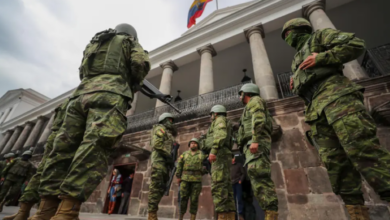Colombia: Blind women saving lives by detecting breast cancer
‘Manos que salvan vidas’ -which in English means 'Hands to save lives'- is the project´s name that trained blind women under a method use by German doctor Frank Hoffmann, who for a decade has been confirming the ability of blind people to detect nodules, which in most cases, are the first manifestation of the disease. This model applied by the German social company 'Discovery Hands', empowers and employs people with visual deficiency, to detect tumors thanks to their sense ability. That is how the University of Santiago de Cali, in collaboration with 'Discovery Hands' and the Development Bank of Latin America, gave life to the Colombian project.
According to explanations by doctor and teacher Luis Alberto Olave, this review can be much more arduous and accurate than conventional tests, because while a routine checkup for early detection breast cancer does not take more than 6 minutes, in this case may exceed half an hour.
The tactile examiner palpates each centimeter of the breast, clavicle and axilla rigorously with a braille-type tape that helps to form a breast map and mark the possible findings. Once the exam is finished, a report is delivered to a general doctor who determines if another kind of tests should be performed.
"The idea with these women is not to detect cancer because cancer is detected by biopsy, but they have a very high sensitivity for detecting nodules and that is corroborated by a clinical study that we did, where we put approximately 300 patients examined by them and then corroborated with ultrasounds if the findings were real or not", explains Olave, indicating that blind women received training for seven months, before putting their knowledge IGNORE INTO practice.
This project not only trains women with vision deficiency, but also takes advantage of their special faculties and becomes an example of labor integration in the country. These aspects led the 'Hands that save lives' project to win one of the Awards of the Continuing Education Network of Latin America and Europe in the category 'Social Responsibility in Continuing Education'.
The first stage of the project, trained and certified seven blind women, one of them from Mexico, who traveled to Cali to receive the training. These people were formed in a complete way by German instructors, who taught them medical terminology, anatomy and aspects of breast disease. After receiving the theory, they carried out a practice for three months at the San Juan de Dios Hospital in Cali and other health centers of the city.
Due to excellent results obtained from both the educational program and the tactile examiners, a second group will begin training during the first three months of 2018. It is also expected that this initiative would be adopted by other cities in the country, to continue fostering the labor integration in the population with physical impediments.





